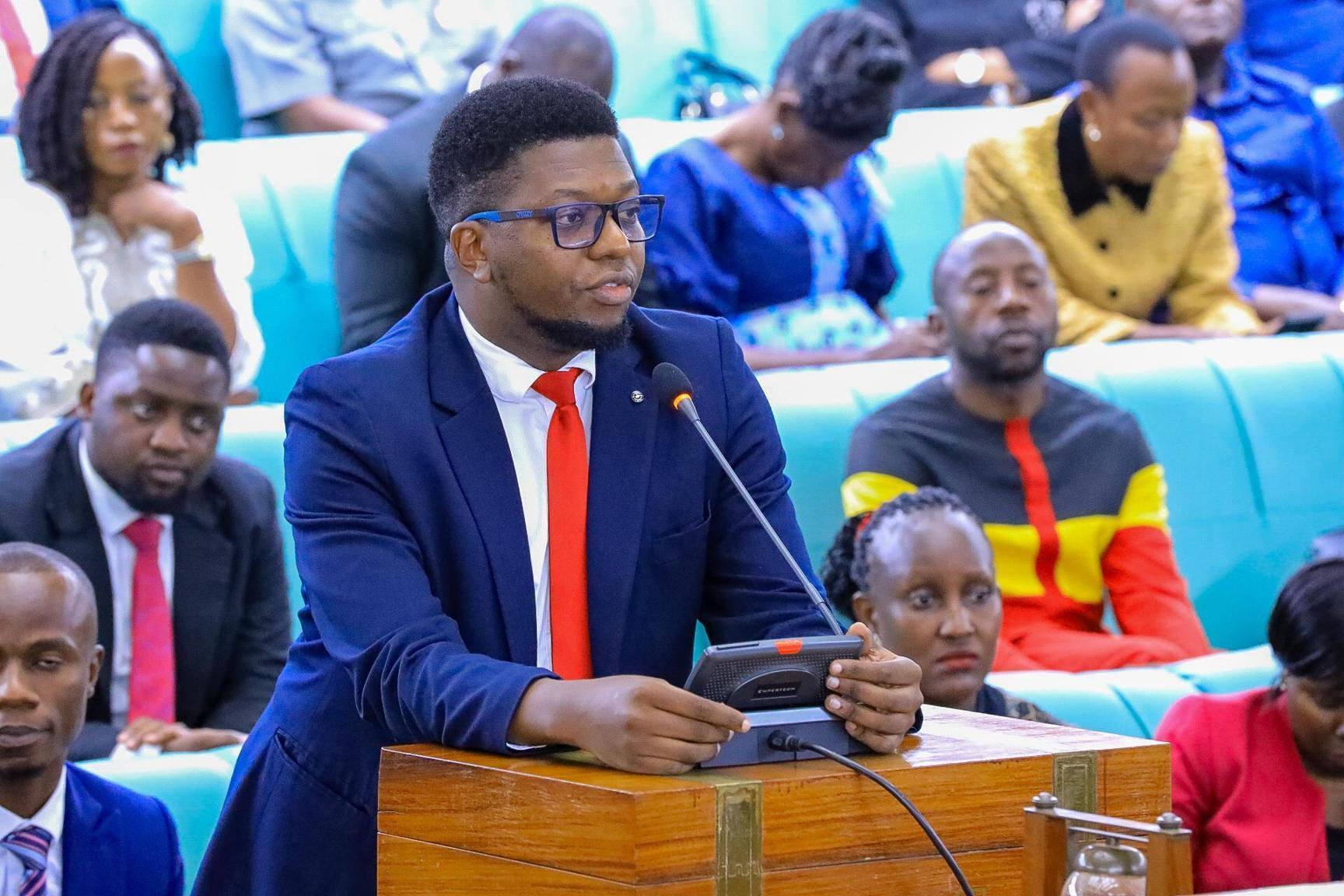Africa-Press – Uganda. When Makindye East Member of Parliament Derrick Nyeko announced Tuesday morning that he would not be seeking re-election in 2026, the news landed with both surprise and eerie familiarity.
Once again, the Kampala suburb known for din, dust and that court martial is on course to change its parliamentary representative — for the fourth election cycle in five.
Makindye East has quietly earned a unique status in the capital’s political landscape: a one-term constituency where only Michael Mabikke has served more than a single term in over two decades.
Since 1996, every elected representative but Mabikke has exited after five years — some by ballot defeat, others by scandal, and a few, like Nyeko, by choice.
“It is with a heart full of joy that I have served you with honour, respect, and a deep commitment never to betray the trust of your vote,” Nyeko wrote in a public statement.
“After deep reflection, I have made the difficult decision not to offer myself for election in the coming polls.”
Nyeko, a National Unity Platform (NUP) MP elected in 2021 on the back of the party’s sweeping “umbrella wave,” joins a growing list of one-term legislators from Makindye East.
He had been under pressure from both within and without. Inside the NUP headquarters in Makerere Kavule, the fight for the party ticket is intense with a commission set up to scrutinise and pick prospective candidates sweating.
Outside NUP, several opposition parties looked like they have been baying for Nyeko’s blood as he was drawn into pushing and shoving, including over flimsy issues like his ethnic background.
Nyako’s exit was always a matter of when, not if, and his announcement has sparked fresh analysis on why this constituency seems chronically unable — or unwilling — to re-elect its MPs.
A Political Graveyard for Incumbents
Makindye East’s revolving-door reputation began in the late 1990s. Benedict Mutyaba captured the seat largely unopposed after the Democratic Party (DP) chose not to field a candidate.
His term ended with controversy, including allegations of poor oversight and lack of delivery, leading to his political eclipse.
In 2001, Michael Mabikke, a charismatic DP youth leader and rising opposition figure, won the seat. Mabikke had risen to prominence along with the likes of Mukasa Mbidde, Erias Lukwago and Mathias Mpuuga under the Uganda Young Democrats banner.
But after fumbling his career in 2011 but attempting to bite more than he could chew as he jumped into the Lord Mayor race, it has been a sour tale since.
In 2011, John Ssimbwa, the NRM candidate, broke through — largely a result of a fragmented opposition that split the vote across multiple candidates. But his stay was short-lived.
Voter fatigue with the ruling party and growing urban opposition sentiment sent Ssimbwa packing after just one term.
Then came Ibrahim Kasozi of the Forum for Democratic Change (FDC), who won in 2016 on a promise to reconnect with the people. His tenure, while visible in Parliament, fell short of transforming lives at the local level.
By 2021, he too had been unseated — swept aside by NUP’s Derrick Nyeko during a red wave that blanketed Kampala.
The Case of Derrick Nyeko
Nyeko’s 2021 win had been hailed as part of a generational shift in politics. Young, energetic, and vocal on national issues, he was embraced by many Makindye East residents hoping for change.
But the tide quickly turned.
By early 2025, Nyeko was facing mounting criticism from some within his own party and among constituents.
Viral videos showed him being heckled and chased away by voters during a visit to the constituency, with residents accusing him of disappearing after taking office.
“Where were you when we needed you?” one elderly woman shouted, as a crowd surrounded his convoy earlier this year.
Whether it was the weight of disillusionment or political calculation, Nyeko’s decision not to seek re-election now places him squarely in the Makindye East tradition: enter with promise, exit after one term.
________________________________________________________
Why the One-Term Curse?
The causes behind this high turnover are multi-layered:
Sky-High Expectations: As an urban, politically conscious electorate, Makindye East voters are known to demand quick, visible results — often expecting MPs to deliver services traditionally outside their legislative mandate. Failure to do so invites swift retribution at the polls.
Party Politics Over Personalities: Voter choices here often reflect national political moods. Ssimbwa’s NRM win rode on opposition division; Nyeko’s success came on the back of NUP’s meteoric rise. MPs have become passengers on party waves — discarded when the tide turns.
Internal Rivalries: The seat is highly coveted, with internal party challenges often undermining incumbents. Within NUP, rising figures like Muhammad Wasswa Mwanje have already declared intentions to take the seat, citing Nyeko’s underperformance.
Disconnection from the Grassroots: Many former MPs, including Kasozi and Mabikke, were accused of “vanishing” after getting elected — a fatal misstep in a community that prizes visibility and accountability.
What Next for Makindye East?
As 2026 looms, a new contest is already taking shape. DP has declared Beatrice Mao, wife of Minister Norbert Mao, as its flag bearer.
NUP is fielding several strong contenders in primaries, and FDC is said to be eyeing a comeback.
With Nyeko’s departure, the seat is wide open once again — and the question remains: Will Makindye East finally break the one-term cycle? Or will another fresh face rise, only to fall five years later?
For now, the only certainty in Makindye East is change.
For More News And Analysis About Uganda Follow Africa-Press






